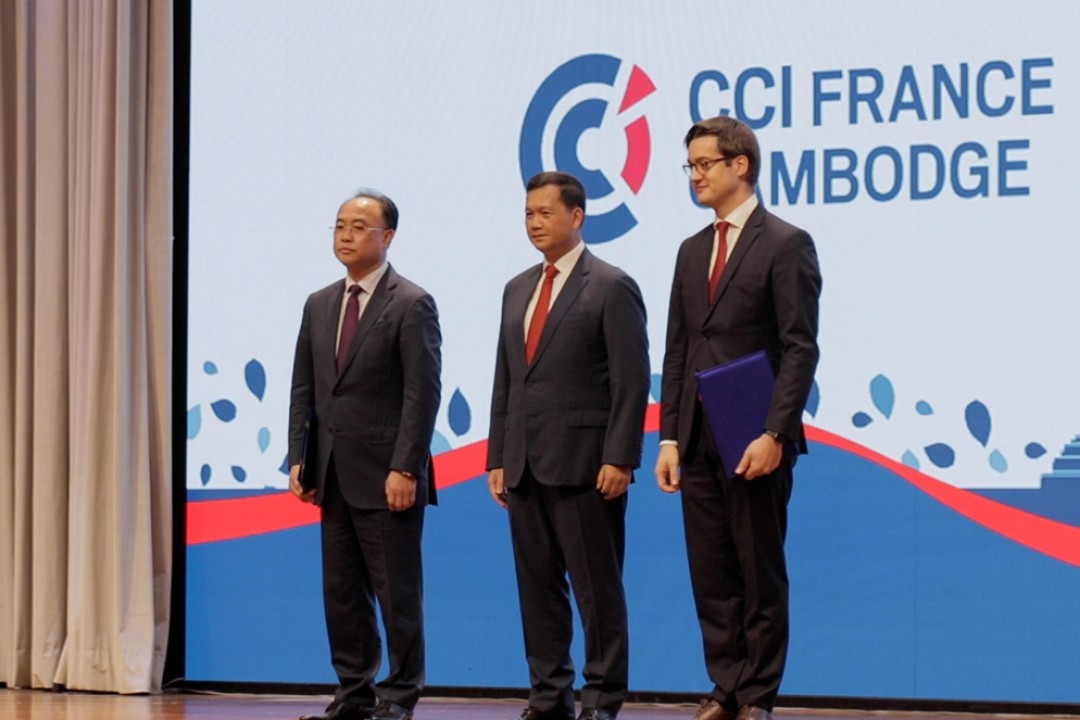
The three-day France-Cambodia Business Forum 2024 commenced on July 8 at the Sofitel Phnom Penh Phokeethra with the aim of bringing together French and Cambodian businesses and government officials to explore opportunities for investment and collaboration.
The forum is jointly organised by the France-Cambodia Chamber of Commerce and Industry (CCIFC), the Cambodia Chamber of Commerce (CCC) and the French Foreign Trade Advisors (CCE). The first two days of the forum take place in Phnom Penh, while the third day offers participants an opportunity to visit Sihanoukville.
The opening ceremony was presided over by Cambodian Prime Minister Hun Manet, and also featured remarks from Neak Oknha Kith Meng, President of the CCC; Cyril Girot, President of the CCIFC; and François Corbin, Vice-President of the Mouvement des Entreprises de France International.
Two memoranda of understanding were also exchanged during the opening, the first between the CCIFC and CCC promoting trade and investment between Cambodian, French and French-speaking businesses, and the second between the CCIFC and the University of Puthisastra to support health education and training.
Cambodia-France Trade 2024
Commenting on trade relations, Prime Minister Hun Manet described France as one of Cambodia’s major trading partners and investors among European countries.
“[In 2023] bilateral trade between both nations reached some USD 515 million, and during the first five months of this year, two-way trade was valued at about USD 206 million,” he shared.
The Prime Minister further highlighted the greater momentum of foreign direct investment (FDI) flowing into Cambodia in the first quarter of 2024, with 190 investment projects approved by the Council for the Development of Cambodia (CDC) worth USD 3.2 billion – around triple the amount recorded in the same quarter in 2023.
Watch a snippet of Prime Minister Hun Manet's speech from
the France-Cambodia Business Forum 2024:
Key Investment Areas In Cambodia For French Businesses
Kith Meng noted public-private partnerships (PPPs) to address infrastructure needs and enhance trade and investment flows between Cambodia and the ASEAN region, as well as technological advancements and innovative solutions, as two key areas of potential collaboration that Cambodia and France can further pursue.
“France has been a major trade and investment partner for Cambodia in various sectors, such as infrastructure, water management, energy, and hospitality,” he added.
He also highlighted Cambodia’s location and business environment as ideal for production and manufacturing.
“With our strategic location in the heart of Southeast Asia, and rapidly developing infrastructure, Cambodia is an ideal production base for reaching the ASEAN market. Our competitive labour costs and supportive business environment make us an attractive destination for manufacturing,” shared Kith Meng.
“As Cambodia prepares to host the (20th) Francophonie Summit in 2026, this business forum will offer a unique opportunity to explore new opportunities.”
“It is our hope that this forum will serve as a catalyst for new partnerships and mutually beneficial business ventures, driving economic growth and development for both Cambodia and France,” he concluded.
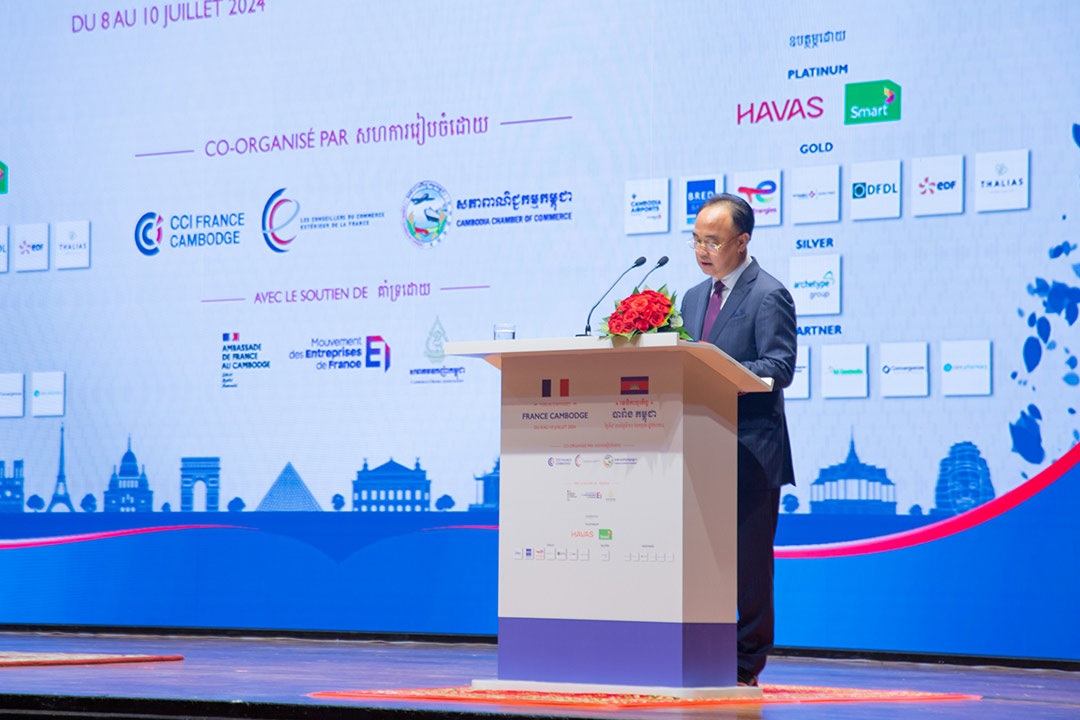
Accessing The Wider ASEAN Market Through Cambodia
The first panel discussion held after the opening ceremony specifically focused on Cambodia’s status as a ‘strategic gateway’ to the wider ASEAN market, a strong theme that was stressed throughout the first day of the business forum, and one which has been the central argument of officials at similar business summits and events.
The panel’s two guest speakers, H.E. Sun Chanthol, Deputy Prime Minister and Vice-Chairman of the CDC, and H.E. Huot Pom, Secretary of State at the Office of the Council of Ministers, emphasised the following key points to make the case for Cambodia’s strategic positioning in the region:
- Macroeconomic stability – Pre-COVID, Cambodia maintained a consistent 7 per cent GDP for two decades. Now in the post-COVID context, Cambodia is forecasted to have a GDP above 6 per cent from 2025 onwards.
- Pro-business government with regular dialogue between public and private sectors – Chanthol spoke of the many private sector working groups that hold regular dialogue with the government, particularly through the Government Private Sector Forum (G-PSF) mechanism, which he mentioned has been recognised for its productivity and efficiency by the International Finance Corporation (IFC) and the World Bank.
- Liberal investment regime – Chanthol, quoting the World Bank, extolled Cambodia’s status as the “most liberal investment regime in ASEAN” as the country does not require foreigners to have local business partners, for example, and allows 100 per cent foreign ownership of business.
- Efforts to diversify the economy – Pom spoke of how Cambodia is set to graduate from least developed country (LDC) status in 2029 and is, thus, seeking to diversify its economy even further, which has traditionally been heavily dependent on real estate, garment production, and tourism, for example. He affirmed that Cambodia is open to investments in less explored sectors in the country and ready to support and build resources in these areas.
- Competitiveness based on location and workforce – Cambodia is geographically well-located in the ASEAN region, with access to key waterways, and is in the process of further developing its infrastructure and logistical systems. Chanthol also highlighted Cambodia’s young population – the “highest rate of young workers in ASEAN” (60 per cent under 25) – whom he described as “willing to be trained” and “hungry for new knowledge”.
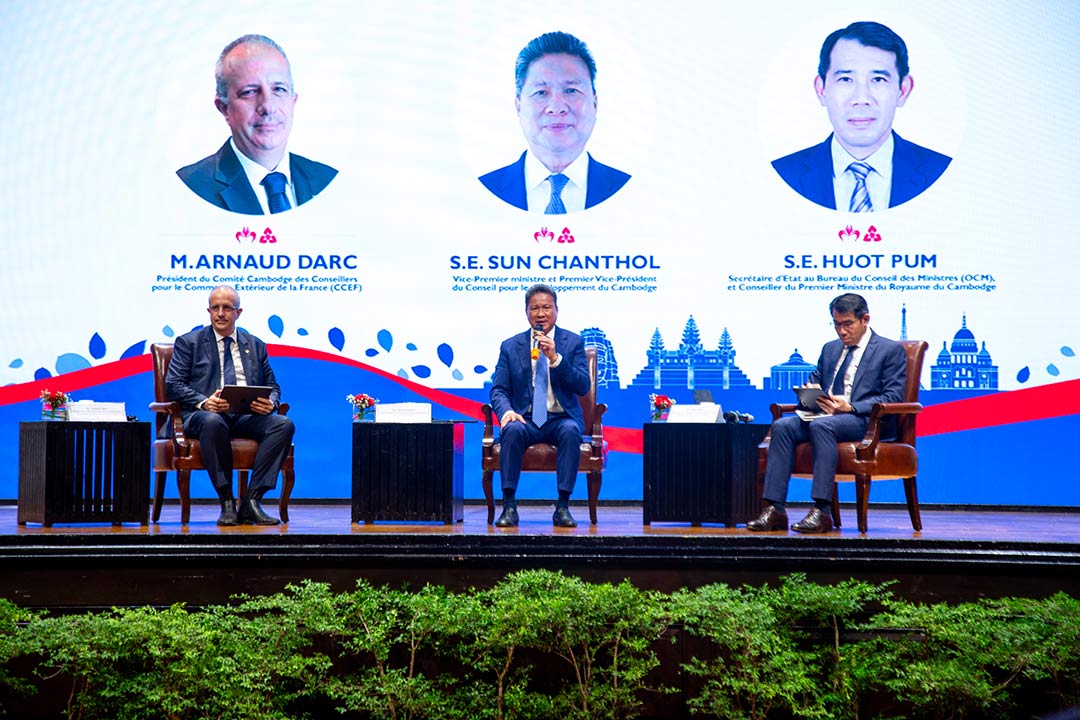
Cambodia’s Industrial And Commercial Attractiveness For Foreign Investors
Another panel discussion focused on the industrial and commercial attractiveness of Cambodia for French investors, featuring H.E Cham Nimul, Minister of Commerce; H.E Hem Vanndy, Minister of Industry, Science, Technology, and Innovation (MISTI); and Neak Oknha Sear Rithy, Founder and Chairman of WorldBridge Group.
Nimul stressed that the Cambodian government is focused on building trust and confidence with investors and insisted that the country’s doors remain open to those abroad who wish to establish themselves in the Kingdom.
“We want to make sure that companies that are moving and putting their establishments here are successful and continue to be prosperous,” she said.
She highlighted Cambodia’s intellectual property (IP) laws as an example of the government’s committed approach to building trust:
If I may extend a little bit on building trust, you will be surprised that for a small country in Southeast Asia, Cambodia has always been very proactive in [adapting] our intellectual property law. It can be quite surprising, because a lot of people say there’s a lot of counterfeit products,... illegal smuggling, illegal trade, [etc.], but we have been working for many, many years to disseminate information to the public and to train the private sector to understand the added value of [IP laws].
Which Business Sectors Are Best Fit For French Investment In Cambodia? – Food Industry
Nimul pointed to a diverse range of sectors that are open to investment from France, but specifically singled out the food industry as one with more potential, especially in making Cambodia a food supplier hub.
“Whether it’s digitisation, whether it's agribusiness, whether it's clean energy… all of [these sectors] are immensely welcome to investment,” said Nimul.
But if you ask me which particular field to go into, Cambodia has the aspiration of becoming a food supplier hub. Because of our favourable land and weather… we are looking to become a reliable partner in providing contracts in food security, that's something that I have been taking on very keenly myself, and I've been working with a lot of governments within the region to establish ourselves as a supplier of food, and specifically for food security.
“I invite you to join us in making Cambodia a food supply hub, whether you want to grow, whether you want to manufacture, whether you want to export, whether it's for the domestic market or for other third or fourth markets, please do so with us, and let's move into providing the world with a quality of food at the French standard,” she added.
Exploring Opportunities For French And Cambodian SMEs – SME Cluster Park
WorldBridge Group has created an SME Cluster zone in Cambodia that offers an ecosystem of facilities, services and operating platforms to eligible small and medium-sized enterprises, that will help to remove certain barriers to global value chains and attract more foreign direct investment (FDI).
When asked about this project and what opportunities it might offer to French businesses, Sear Rithy spoke of the advantages of establishing a business in an emerging market like Cambodia, also speaking of France’s strong, but increasingly challenged, position as a leading food processing and export country.
If you, a French company, want to build your own brand for an emerging market, please think about coming to our SME cluster. We build the ecosystem for you, and you don't have to worry about building the infrastructure… We even have a logistics centre to support you with packaging, and we can even do the storage for you.
"I keep on talking about food processing because French companies are strong in this, but Cambodia has top quality ingredients that you can make use of that are also cheap. We have mangoes, cashews, cassava, Kampot black pepper, a lot of good, top quality ingredients,” he added.
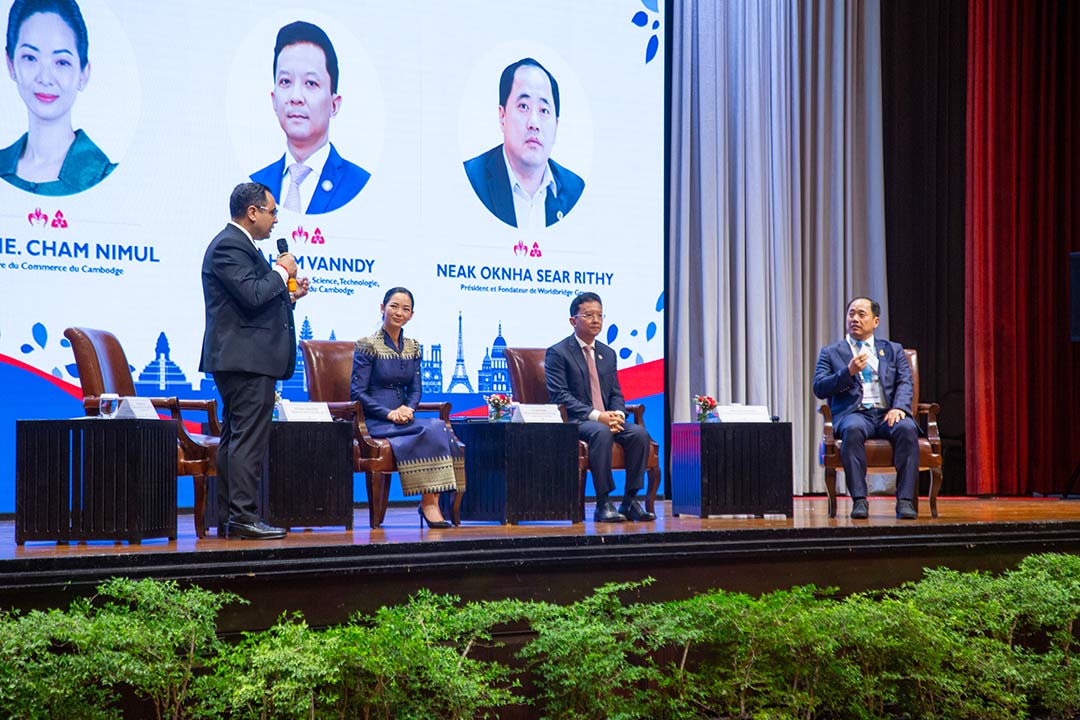
On the subject of SMEs, the Minister of Industry also wished to dispel the outdated view that most SMEs in Cambodia still lack the sophistication that foreign, including French, investors might be looking for.
Citing preliminary results from an unpublished analytical report commissioned by MISTI in collaboration with the Australian government’s CAPRED program, Vanndy said that in the 10-year period between 2001-2011 Cambodia’s economy grew from 2 billion to 9.5 billion with almost no diversification. However, things changed from 2011 to 2021, and the Cambodian economy grew from 9.5 billion to 26.4 billion with fast diversification.
So I think the question from French investors is: Can we find good local, Cambodian, promising entrepreneurs? Yes, you can.
“Some are already in business and have gone directly into the market themselves, but there are plenty of more opportunities to collaborate together, and indeed many struggle… But the government is now helping them to transform, transition and to formalise,” he added.
Vanndy also called on foreign investors to expand their business mindset to see extra costs incurred to increase standards and overall quality as a worthy and mutually beneficial investment for the future.
I think French companies can look at these opportunities in Cambodia. It's quite convenient to set up a factory, import raw materials and export finished products, but I think it's an extra effort worth investment to explore how you can help Cambodian SMEs create backward linkages. I'm not saying it's easy to work with SMEs and local companies, but it is a mission and noble task that I hope French companies will take on when investing and deciding to come to Cambodia.
“Don’t just look at profitability… I think the main business mindset has to change. Instead of seeing [meeting higher] standards and quality as a cost, they should consider this as an investment, otherwise they cannot enter into any new market in the future,” the Minister concluded.
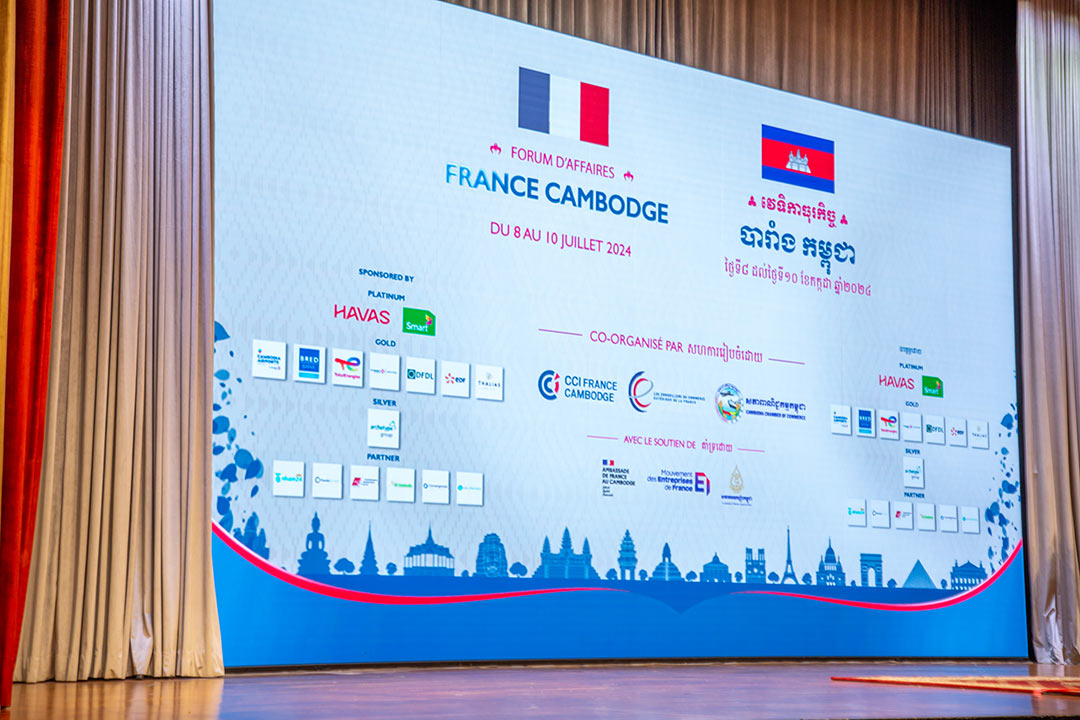
Read More On Cambodia Investment Opportunities:
- India-Cambodia Joint Working Group on Trade & Investment (JWGTI) 2024 Key Takeaways.
- LEGAL UPDATE: Incentives Under Cambodia's Law On Investment – With Sethalay Law Office.
- Navigating Investment Challenges And Opportunities In Cambodia: Interview With Christophe Forsinetti, Chairman Of OBOR Capital.
- Four Kampong Speu Province Investment Projects Worth USD $25M Approved.